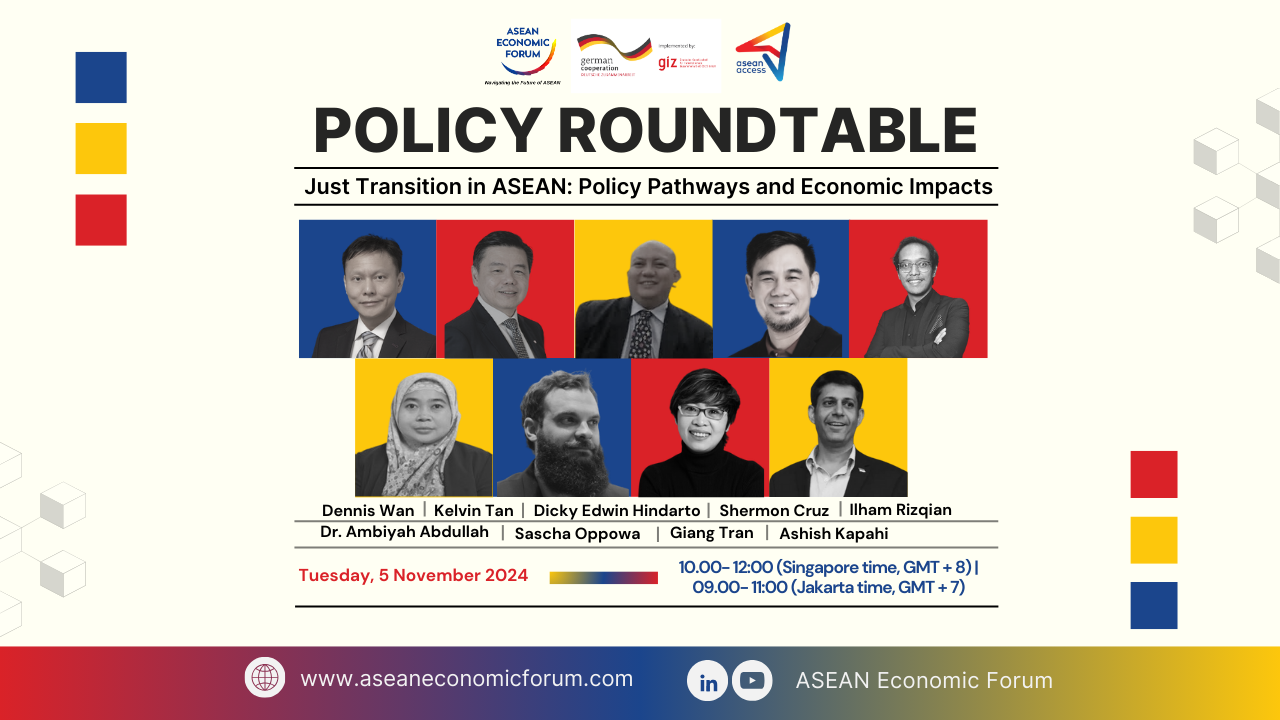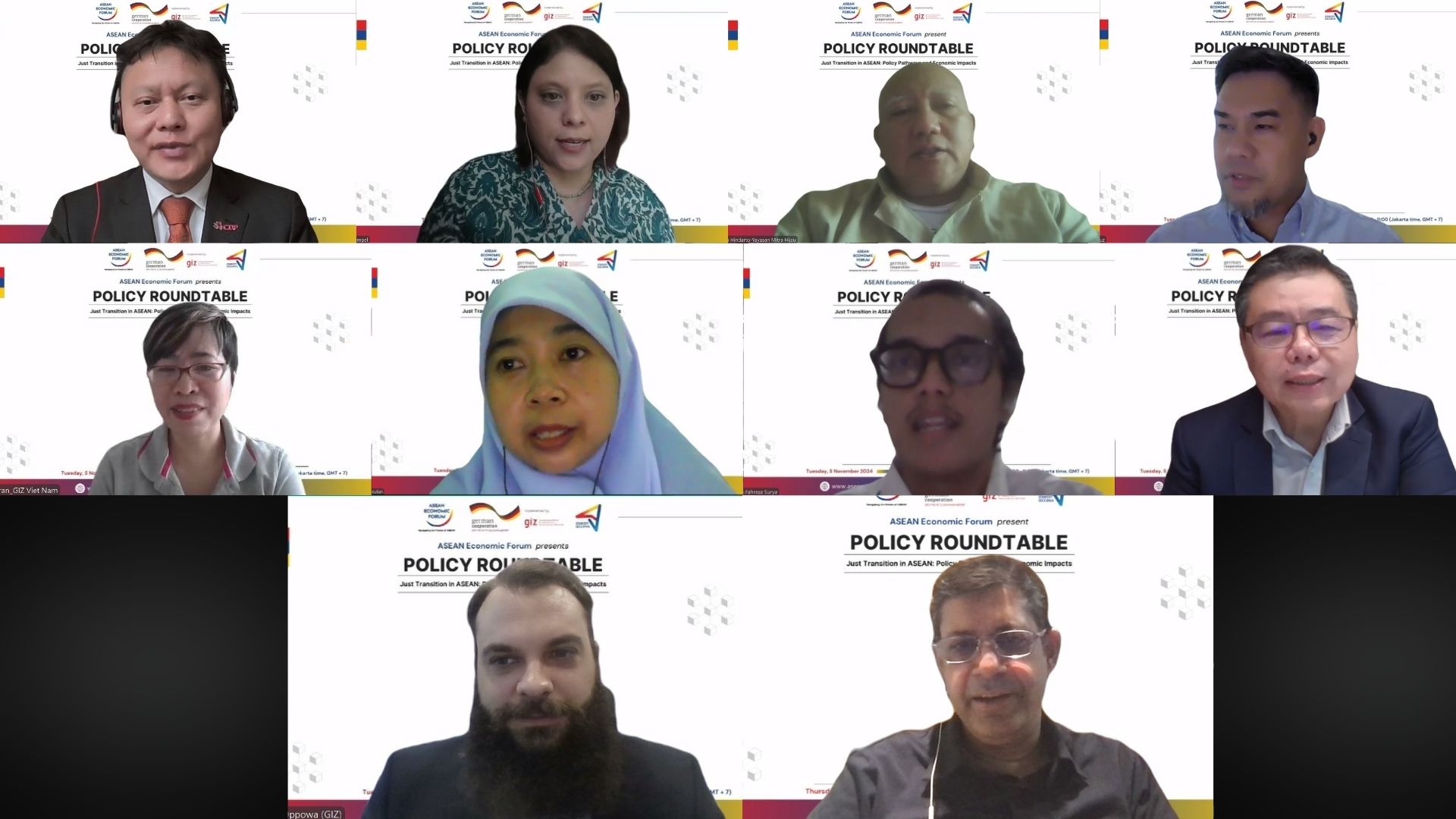
Tuesday, 5 November 2024 | 10:00 - 12:00 GMT +8 | Virtual via Zoom

April 2024

The roundtable focused on digital trade, particularly with a view to the upcoming Digital Economy Framework Agreement (DEFA) of ASEAN. DEFA negotiations are expected to be completed by 2025, acknowledging the importance of consolidating commitments to advance the digital economy and e-commerce under a comprehensive digital-only framework.

he ASEAN Gender Inclusion Forum took place on 10th May 2024 in Singapore, focusing on “Women’s Leadership in ASEAN: Driving Economic Growth”. With a hybrid participation format, this forum focused on showcasing ASEAN’s commitment to gender equality and inclusion. This forum allowed speakers from across ASEAN member states to actively discuss, share their insights, and suggest strategies to promote gender
November 5, 2024 – As the ASEAN region faces increasing climate change impacts, a Just Transition from fossil fuels to sustainable energy has become vital in policy discussions. This transition supports economic growth, environmental sustainability, and inclusivity—particularly for small and medium enterprises (SMEs) that form the backbone of ASEAN economies.
However, limited resources and knowledge make collaborative support essential for SMEs. On November 5, 2024, the ASEAN Economic Forum (AEF) and Deutsche Gesellschaft für Internationale Zusammenarbeit (GIZ) with support from the German Government (BMZ) held a virtual policy roundtable on "Just Transition in ASEAN: Policy Pathways and Economic Impacts." The discussion aims to address the challenges SMEs face in transitioning to sustainable energy.
Moderated by Dennis Wan, Head of Capital Market APAC, CDP, the policy roundtable brought together experts and thought leaders from CSOs, the private sector, and other organisations to explore inclusive approaches for a Just Transition in ASEAN, primarily focused on energy and environmental issues.

Covering multidisciplinary expertise, the panelists discussed the key areas needed to ensure a Just Transition in ASEAN. They focused on identifying challenges and opportunities for a fair and sustainable shift to clean energy, highlighting the importance of regional cooperation. Based on the roundtable outcomes, they outlined their priorities for the coming years to ensure the transition benefits everyone in ASEAN.
Map solutions and address challenges of rising energy demands and urgent decarbonisation in ASEAN by promoting knowledge sharing and providing technical support to bridge capability gaps.
Policies should address the specific needs of local governments, SMEs, and communities, enabling ASEAN and national governments to ensure a fair, locally aligned transition.
Actively advocate for the inclusion of SMEs in Just Transition-related policymaking to ensure climate policies are fair and supportive, recognising the vital role of small businesses in regional economies.
Develop mechanisms that encourage SMEs to adopt energy-efficient practices and renewable energy by offering incentives that ease financial and technical barriers, enabling them to support climate goals without hindering growth.
Promote policies that empower women, underserved communities, and marginalised groups to access the financial, technical, and other resources needed to fully engage in the energy transition, breaking down systemic barriers and enhancing the inclusivity of ASEAN's climate goals.